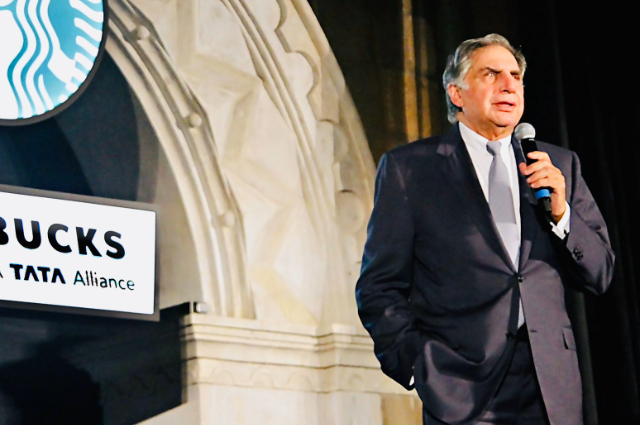Early Life and Education
- Birth: Ratan Naval Tata was born on December 28, 1937, in Mumbai, India, into the famous Tata family, one of India’s most influential industrial families.
- Family: He was born to Naval Tata and Sonoo Tata. After his parents separated when he was just ten years old, he was raised by his grandmother, Navajbai Tata.
- Education: He studied at the Campion School in Mumbai and later at the Cathedral and John Connon School. He then attended Bishop Cotton School in Shimla. After finishing high school, he pursued a degree in architecture from Cornell University in the United States and later completed an Advanced Management Program from Harvard Business School in 1975.
Lesser-Known Facts About Ratan Tata
- Architect at Heart: Ratan Tata initially wanted to become an architect rather than joining the family business. He had a passion for designing buildings and spaces. His degree from Cornell University was in architecture, which is why he took a keen interest in the design aspects of many Tata projects.
- Early Struggles in Tata Group: When Ratan Tata first joined the Tata Group in 1962, he started at the shop floor of Tata Steel in Jamshedpur, handling tasks like shoveling limestone. This experience gave him a deep understanding of the grassroots functioning of the industry.
- Misunderstood Visionary: Ratan Tata’s early leadership at Tata Sons was met with skepticism by many within the organization. He faced resistance when he tried to modernize the conglomerate, close underperforming units, and shift the group towards a more integrated and technologically forward approach.
- A Compassionate Leader: Beyond his business acumen, Ratan Tata is known for his humility and humanitarian efforts. For instance, during the 26/11 Mumbai terrorist attacks, he personally visited the families of those affected and ensured their needs were met. He even offered employment to those who had lost their jobs due to the attack on the Taj Mahal Palace Hotel.
Major Contributions to Tata Group
- Transforming Tata Group: Ratan Tata took over as the chairman of Tata Sons in 1991, at a time when India was undergoing economic liberalization. Under his leadership, the Tata Group expanded globally, acquiring companies like Tetley Tea (UK), Daewoo’s commercial vehicle business in South Korea, and the iconic Jaguar Land Rover.
- The Tata Nano: One of his most ambitious projects was the Tata Nano, launched in 2008 as the world's cheapest car, aimed at making cars affordable for the Indian middle class. Although the Nano did not achieve the commercial success he hoped for, it remains a testament to his vision of making innovation accessible to all.
- Philanthropy: Ratan Tata has been a significant contributor to philanthropic causes. Through Tata Trusts, which holds a majority stake in Tata Sons, he has channeled funds towards education, rural development, and healthcare. He also invested in promising startups, such as Paytm and Ola, helping shape the tech landscape in India.
Lesser-Known Contributions and Interests
- Investments in Startups: After retiring as chairman of Tata Sons in 2012, Ratan Tata became an active angel investor. His personal investments in startups like Snapdeal, Ola, Paytm, and others showed his belief in the potential of India’s startup ecosystem.
- Love for Dogs: Ratan Tata is an animal lover, particularly fond of dogs. During his time at the Taj Mahal Palace Hotel, he ensured that stray dogs found a safe haven on the hotel premises. It’s a lesser-known fact that the dogs at the Tata headquarters in Mumbai are treated with special care, a testament to his compassionate nature.
- Recipient of Honorary Awards: Ratan Tata has received numerous honors, including the Padma Bhushan (2000) and Padma Vibhushan (2008), two of India’s highest civilian awards. Yet, he has always maintained a low profile regarding his achievements.
Retirement and Life Post-Tata Group
- Retirement in 2012: Ratan Tata stepped down as chairman of Tata Sons on December 28, 2012, the day of his 75th birthday, handing over the reins to Cyrus Mistry. However, following controversies and a boardroom battle, he briefly returned as interim chairman in 2016.
- Focus on Philanthropy: Post-retirement, Ratan Tata has dedicated most of his time to philanthropy and mentoring young entrepreneurs. He has taken a special interest in the development of the startup ecosystem in India and has been an advocate for social causes like rural development and mental health awareness.
Recent Years and Legacy
- Mentorship and Advocacy: Ratan Tata remains a mentor and guide to many in the business community, offering insights from his rich experience. He continues to serve as a role model for ethical business practices and leadership with integrity.
- Support During the COVID-19 Pandemic: During the COVID-19 pandemic, Ratan Tata’s charitable contributions through the Tata Trusts and Tata Group supported India’s healthcare infrastructure, providing medical supplies and funding for vaccines.
Current Status
- Health Rumors: Over the years, rumors regarding Ratan Tata’s health have surfaced occasionally, but there has been no official confirmation of any severe illness. As of now, he continues to be active in philanthropic circles and remains a revered figure in India.
Ratan Tata’s story is one of resilience, vision, and a deep sense of responsibility towards society. Despite his global success, he has always maintained a humble demeanour, focusing more on the impact he can make rather than on personal acclaim.
. . .
Discus

